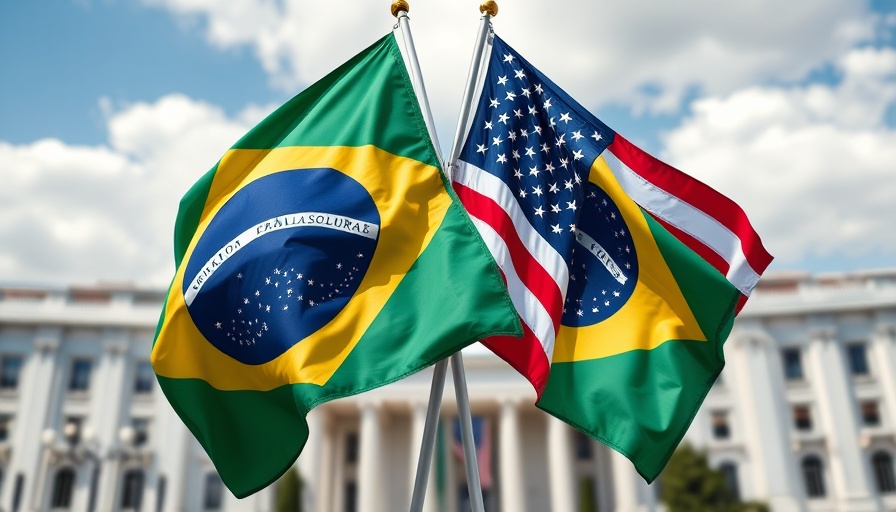
Visa Restrictions on Brazilian Judicial Officials Explained
The U.S. government recently announced stringent visa restrictions on specific Brazilian judicial officials and their immediate family members. This decision reflects increasing concerns regarding the integrity and independence of Brazil's justice system amidst growing corruption allegations. By limiting the travel options for these officials, the U.S. seeks to send a clear message about accountability and the rule of law.
Understanding the Political Context
The backdrop of these restrictions is a turbulent political climate in Brazil. As the nation grapples with widespread corruption scandals that implicate high-ranking officials, including members of the judiciary, international observers have raised alarms about the potential erosion of democratic norms. These visa restrictions come as a reaction to significant national events that have highlighted the need for robust judicial processes.
Implications for U.S.-Brazil Relations
These measures stand to impact the broader relationship between the U.S. and Brazil. While both nations traditionally share strong ties, especially in trade and security, such a unilateral decision can signal tensions. The U.S. aims to hold Brazil accountable while simultaneously protecting its interests within Latin America, a region of growing strategic value amidst geopolitical shifts.
The Role of Transparency in Governance
By implementing these restrictions, the U.S. is advocating for transparency in governance and the legal framework in Brazil. It underscores a vital aspect of democratic health: that officials, particularly in the judiciary, must be independent and free from corruption. The implication here is significant—without accountability, the very foundation of democratic institutions could falter.
Potential Outcomes and Future Considerations
The visa restrictions pose several questions moving forward: Will these measures lead to changes in Brazil’s judicial practices? Could they inspire further reforms aimed at increasing transparency? The answer rests significantly on how both nations navigate this complex issue moving forward. Observers are watching closely to see if Brazil will respond positively to these criticisms or become further entrenched in a defensive posture against foreign intervention.
Juxtaposition with Other U.S. Foreign Relations
This decision also finds itself in the context of the U.S.'s broader foreign policy strategy, particularly concerning countries with similar governance issues. Comparing Brazil's situation with injustices identified in nations like Venezuela or Nicaragua highlights the U.S.'s ongoing commitment to promote democratic values abroad while managing varied diplomatic relationships. With the election cycle in the U.S. also heating up, these actions may play into a broader narrative about American influence and leadership on the global stage.
Final Thoughts: What We Can Learn
The announcement of visa restrictions serves as a crucial reminder of the interconnectedness of global politics. As citizens and stakeholders in democracy, awareness of international reactions to national governance challenges is critical. The implications of these actions extend beyond borders, urging individuals to consider their roles in advocating for integrity and transparency not only at home but throughout the world.
What You Can Do
For those interested in contributing to transparency and accountability in governance, supporting organizations that promote judicial integrity or participating in discussions surrounding international policy can make a significant impact. Engaging in dialogue about corruption and governance in your local community is equally essential, as the principles of democracy are universal, resonating worldwide. Encouraging your representatives to stand firm on international issues of accountability can also play an integral role in enabling positive change.
 Add Element
Add Element  Add Row
Add Row 



Write A Comment